- Home
- Gerald Hammond
Home to Roost Page 5
Home to Roost Read online
Page 5
Pigeon were streaming towards their roosts, turning aside at the first shots to seek safer haven elsewhere. The low sun was in my eyes at first but the shadow of the woods soon enveloped us, bringing with it a more penetrating cold. As the light faded, Deborah moved to the other end of the wood and I left the hide to stand against the trunk of a tall pine. My barrels grew warm. I found that I had difficulty seeing my gun against the sky. Paradoxically, my shooting improved.
There was no moon yet. As the last of the sun-light died, darkness was almost complete. Deborah reappeared at my side. ‘Time to pick up,’ she said. ‘I want Sam. There are three down I can’t find. I think Ian Kerr’s gone home already and I don’t hear Dad shooting. We’ve done well enough for one day.’
While we packed the bags by torchlight Sam circled, bringing back the shot birds two or three at a time in his large mouth. We made one last circuit by the light of Deborah’s powerful torch and spotted a wounded bird far out in the stubble, and that seemed to be that. The sound of shooting had almost died away but an occasional shot came from the direction of McKimber and I could see the flashes below the trees. The pigeon had found their way in to roost. I could hear them stirring in the branches above us whenever our noise disturbed them.
Between us, we had more than eighty birds – a considerable weight to add to our bags of decoys, even though these were relieved of the weight of food and many cartridges. ‘Brian Dunbar seems to have forgotten us,’ Deborah said.
‘He only said that he’d try,’ I reminded her.
She heaved a bag on to her shoulder. ‘He could have tried harder,’ she said.
We set off back to the farm, stumbling over unseen bumps. Between the weight I was carrying and the stiffness of a day spent loitering in the cold, the journey was purgatory and I was never so glad to get back to a car. Deborah, I could tell, was near exhaustion, but she never uttered a word of complaint.
We had loaded the car and settled Sam on the back seat when the farmhouse door opened, spilling a long wedge of light. A woman’s figure was silhouetted. ‘Brian says to come inside for a fly cup,’ she called.
We followed her into a large, warm kitchen. The big all-purpose table was pushed back towards the dresser and around the range stood a semi-circle of chairs of various ages and designs. Keith, Ronnie (his brother-in-law) and Brian Dunbar were already lolling at ease.
Mrs Dunbar was in middle age with a figure to match. She could have been modestly attractive but she had made no effort to resist the passing of the years and could now best be described as ‘comfortable’. She could be seen to dote on her husband, but evidently she was one of those women who believe that to satisfy the inner man is enough – a belief which often seems to be more than justified. She spoke very little and then only about the food. Her idea of a ‘fly cup’ included tea – which was virtually ignored, beer and whisky being preferred – with soup, more sausage rolls, bread rolls with savoury fillings and a variety of cakes. After a day in the cold fresh air, I felt half starved. I had promised to take Deborah out to dinner so I tried to hold back, but when I saw that Deborah was eating as though the food would be her last I decided to eat my fill.
‘You seemed to be getting the hang of it, towards dusk,’ Keith told me.
‘I was out of your sight,’ I said.
‘Even if I hadn’t seen you cross the field after Ian Kerr joined you, I’d have known. I could see the birds above the trees, and when I saw that somebody near the high seat was missing at first and then beginning to connect . . . well, who else would it be?’
‘That’s true,’ I admitted.
Keith smiled ruefully. ‘Not that we did much better. We picked up about forty between us, but there are probably a few we missed in the dark. We’d better come back by daylight and work the dogs over the ground again.’
‘Ian Kerr doesn’t have a dog and I didn’t see the light of a torch,’ Deborah said. ‘I bet he’s left a few behind.’
‘His car’s still in the yard,’ Dunbar said uncertainly.
Ronnie stirred. He was a large man and his length, sprawled out, seemed to span the room. His face, which could kindly be described as rugged, was puzzled. ‘Well, he didn’t come past us,’ he said. ‘No’ on the way back.’
‘If one of his birds flew on and dropped in McKimber woods,’ Dunbar said, ‘maybe he detoured around that way. He aye has a bottle in his bag. If he felt he couldn’t drive . . .’
‘He was sober when I left him,’ I said.
‘It doesn’t take long,’ said Ronnie.
‘The voice of experience,’ Keith said. ‘If he’d drink taken, he may have tried to climb to the high seat and had a fall.’
‘Likely he’s still searching for a lost bird,’ Dunbar said. ‘But we’d better take a look and see that nothing’s come over him.’
‘Not that he fired many shots,’ Keith said. ‘He was doing well at first. Then I saw him miss several in a row and that was the end of it. Maybe he gave up early in disgust and walked home through McKimber. Or maybe not. We’d come down with you, but we can’t bide. Molly wanted me back early and Ronnie has a date.’
‘How about you two?’ Dunbar asked Deborah. ‘If Ian’s had an accident or a heart attack, I’ll need a hand with him.’
Deborah looked a question at me and then nodded. ‘We’re supposed to be eating out,’ she said, ‘but after what you’ve given us it’ll be hours before I’m hungry again.’
We thanked Mrs Dunbar and she looked gratified. Outside, the cold attacked my ears and fingers. We piled into Dunbar’s Land-Rover. I took the middle seat. Dunbar might have enjoyed changing gear between Deborah’s legs but I grudged him the pleasure. The heater soon overcame the cold as we bumped down the track and around the fields.
At the small wood, we disembarked. The moon was beginning to illuminate the cloud cover but the land was dark. Dunbar had a lamp and Deborah her powerful torch. I could see another torch bobbing about on McKimber as a late shooter searched for his birds. There was no sign of Ian Kerr, nor of his gun.
‘Did you pick up your cartridges?’ Deborah asked. She was using her torch to search in the bushes behind the hide.
‘Of course,’ I said. She had lectured me on the subject.
‘I count eleven here. That’s about as many as I heard shots from him. He had more chances than that, though. He must have been feeling poorly.’
We searched the little wood. Dunbar even climbed to the high seat. There was no sign of Ian Kerr. We decided that he must have taken a dram too many out of his bottle and walked home through McKimber woods.
Before we left, Deborah took one last look around the hide. ‘What did I tell you to do with your feet?’ she asked me.
‘To pivot on the balls of the feet and not to dance around,’ I said guiltily.
‘You forgot, didn’t you? From the scrapes you’ve left, anyone would think that there’d been a struggle in here. Golly, it’s cold. Let’s go.’
Chapter Three
On the following day, the Sunday, I was off duty again, but Deborah was to be busy, organising a major competition at the Gun Club. I could have gone along for the practice, but claybusting can be expensive and she had made it clear that she would have no time to spare for me.
Keith had asked for my help in gathering up any birds which had been missed in the darkness of the previous night. I wondered what possible use I could be in such a task until I discovered that Deborah had gone off with his jeep and that Molly wanted the family car for one of her ventures in wildlife photography. Like a dutiful prospective son-in-law, if that is what I was, I picked up Keith and his spaniel from Briesland House in mid-morning.
‘Sam would have been the better dog,’ Keith grumbled as I drove, ‘but Deborah’s taken him with her.’
‘Pity,’ I said. ‘He enjoys working.’
‘Given a free choice, he’d have gone with Deb. The Gun Club members slip him food. He’s getting fat. Labs put on weight easily and it’s hell’s own
job to get it off them again.’
‘He’s a fine figure of a dog,’ I said.
Brian Dunbar was working on his tractor again in the yard at Nuttleigh’s Farm. He came over to talk while we put on our boots and thick coats. As usual, he was dressed with complete disregard for the weather. Although the sun was out there was no sign of a thaw.
‘Agnes Kerr was on the phone,’ he said. ‘Ian never went home last night.’
Keith straightened up, frowning. ‘It isn’t quite the first time,’ he said.
‘It’s happened once or twice,’ Brian said. ‘Once he’s drink taken . . . I told Agnes we’d looked for him where he’d been shooting and there was no sign. She walked over and collected his car.’
‘Was his gun in the car?’ I asked. A man who had decided to go off on a binge was none of my business until he got into trouble. A drunken farmer with a shotgun merited my attention.
‘If it was, it was locked in the boot.’
‘Have you been down again in daylight?’ Keith asked him.
‘Just a quick look. There was no sign of Ian. I picked up two birds. I put them in my freezer. I thought you’d not grudge me a brace.’
‘Have a few more, if you like,’ Keith said.
‘I’ve plenty.’
Keith and I set off. I hoped that we would not find many birds. A single pigeon weighs very little but in bulk, I had discovered the previous afternoon, they can add up to a considerable load. I had had enough of humping heavy weights over the fields.
As we topped the rise and the lower fields came into view, Keith stopped and looked around. ‘I can see one already, away over on the grass. I’ll get the dog on to it if I can, but a spaniel isn’t keen to range so far afield as a Lab.’
I looked where he was pointing but my eyes were not attuned to spotting a fallen bird. By dint of much whistling and many signals, Keith pushed the spaniel further and further out, but I could not see the bird until the dog’s head went down and he came sprinting back towards us.
We looped and zigzagged around the fields, paying particular attention to ditches and rough ground. The spaniel did most of the work. Keith had the knack of seeing birds where I could see only leaves or bare ground but, when we came at last to the little wood, I found two in the open trench and then justified my presence by spotting a dead pigeon caught up among the branches of the tree which supported the high seat. Keith went up the crude ladder to shake the bird loose and paused to look around from the high vantage point. I looked in the trailer to see whether a bird had fallen there. It struck me that there was something different about the odds and ends of its load but I was damned if I could think where the difference lay.
‘I see one more down in the rape,’ Keith said from above. ‘And Allan Brindle’s watching us from the high ground. I don’t doubt he’s been doing much the same as us.’ I looked up. The keeper was standing like a statue, leaning on his thumbstick. Keith arrived back on the ground. ‘Damned if I know where Ian Kerr’s got to. Sunk without trace.’ He stooped to pick up a few feathers. ‘How did you despatch any birds which weren’t clean killed?’ he asked me suddenly.
‘Held them by the body and knocked them on the head with a stick,’ I said. ‘That’s what Deborah told me to do. Why?’
‘Remind me to show you how to wring their necks without pulling their heads clean off.’
The spaniel collected the last pigeon, bringing our total to a round dozen.
Brindle had left the edge of the McKimber woods, pushed through the hedge and descended the slope to the boundary fence. We walked to meet him but Keith diverged from the shortest route to examine the end of the open trench. Brindle waited patiently until we joined him. A polite nod was as much as he could manage by way of a greeting.
‘I’ve this list for you,’ he told me without preamble and then switched to Keith. ‘Your idea?’
‘If that’s the list of your beaters and others,’ Keith said, ‘then yes.’
‘It’s a good yin.’
Keith took the list out of my hand and fumbled to unfold it with gloved fingers. It ran to about fifty names.
‘That many?’ I said.
‘Aye. There’s some can only turn out to beat on Saturdays, others are on shifts. There’s four dog/man, two neighbours Mr Jeffries lets shoot rabbit and pigeon out of season, the lad from the game farm who delivers the birds and a pair of foresters who come around lopping the trees. Then there’s the laird’s gardener.’
‘I’ll show it to my partner and our two wives,’ Keith said. ‘They’re in the shop more than I am. But I can see two on the list who’ve bought airgun slugs. Were they two-two or one-seven-seven, did you notice?’
‘Two-two, the ones I’ve found in wounded birds. But that’s not to say he doesn’t use the both of them.’
Keith nodded. ‘There’s at least one name I can knock off the list. He bought Derriboots off me a few weeks back. Elevens. He couldn’t get his toes into nines. I see that Ian Kerr’s listed.’
Brindle’s scowl was a thundercloud. ‘Aye. He used to come beating. But I fell out with him. If he doesn’t want to let his sporting rights, that’s up to him, but he’s no need to be so brazen about feeding the boundary; and so I telled him.’
‘And Sir Isaac Hendry?’
‘I spoke to Mr Jeffries. There’s no point doing half a job. Mr Jeffries gied me the names of anybody who’s come as a paying Gun more than once or twice and of the laird’s usual guest Guns.’
I could see that Keith was hiding a degree of amusement. Looking over his shoulder I could recognise one or two names of men who would have been appalled or frankly incredulous to learn that they had been included in a list of potential poachers.
‘I’ll see if we can whittle the list down a bit for you,’ Keith said. ‘Coming back to Ian Kerr, he never went home last night.’
Brindle seemed unsurprised. ‘Try the Reaper Hotel. Or the Canal Bar in Newton Lauder.’
‘His car was still at Nuttleigh’s until his wife fetched it. And I was in March Strip. He didn’t go that way.’
‘Who knows what a drunk will do?’
‘He was sober when he joined me at the high seat,’ I said. ‘Not even the smell of drink on him. And only an hour or two later, he was gone.’
‘A man like that can go through a bottle in an hour, easy. Maybe he came this way.’
‘We’d have seen him from March Strip,’ Keith said.
Brindle’s face twisted in what was evidently a sardonic smile. ‘You’d be watching the sky for the next cushie-doo. It’s just amazing what a man won’t see when he’s looking up. I mind once, when I was an under-keeper, one of the Guns was standing with his wife beside him. He was so intent not to be caught napping that when she fell down with a heart attack he never noticed, not until the whistle went for the end of the drive.’
Brindle paused to cogitate, leaning on his thumbstick with the ease of long habit. ‘I placed the Guns mysel’ and dared them to move. I wasn’t having a whole bourach of rogues traipsing around the place. The laird – Mr Youngson – was at the edge of the woods about level with the high seat. Along a bit, about opposite March Strip, there was the man Wright, the one they call Hempie.’
‘Uneasy neighbours,’ Keith said. I could guess what he meant. ‘Hempie’ is a Scots word for ‘rogue’.
Brindle sniffed and then spat disgustedly. ‘You’d think so,’ he said. ‘I’d not have let him set foot on the land, but it was the laird who wanted me to give him a place and Mr Jeffries said I should oblige him. I was hoping the laird might keep an eye on the wee devil. But I took the wife out for a late drink and when I came back somebody was still shooting by moonlight. I followed the noise and it was Wright. Tried to make out he thought his permission extended to midnight. I soon changed his mind for him,’ Brindle said with satisfaction. ‘And I made him turn out the postie’s bag that does him for a game-bag, but it was all pigeon.
‘On the other side,’ Brindle nodded towards the south
, ‘there was a mannie Mr Pollinder had sent. I’d seen him before but I’m damned if I know where. I’m not good at names and faces – they’re a’ “Hey, you!” to me. I could ask the laird whether he saw Ian Kerr go by.’ He was looking at me.
‘Don’t bother for the moment,’ I said. ‘Mr Kerr will probably show up in a day or two. You weren’t poached last night?’
‘Not that I’m aware of,’ Brindle said slowly. ‘We’ve finished catching up, so he’d have no chance of robbing the catchers, and with the place hotching with men – some of them stayed on for when the moon came out – he’d be daft to carry an airgun round with him. Mr Jeffries himself was shooting, so I placed him right in the middle of the woods.’
‘He won’t have seen many pigeon,’ Keith said.
‘They’re his bloody pheasants. We heard a vehicle during the night but I’ve seen no signs of the poacher.’ Brindle paused and scratched his head. ‘If our man was a real professional poacher, I’d not have been expecting him on such a night.’
Keith was nodding. ‘The clever poacher likes a wind to cover his noise,’ he said, ‘a night after rain when the birds will be sitting out on the branches so as not to be dripped on, and a starlit night rather than the moon.’
‘I jalouse you’re not the poacher,’ Brindle said. (Keith smiled, not the least offended.) ‘You know a little too much. My mannie’s not so artful.’ He fished out another paper and gave it to me. ‘I’ve looked in my diary and here are the dates he’s been at work. Fine nights, most of them. My guess is he’s an amateur. But he’s slippery.
‘Anyway, that’s the pigeon-shoot over for the year, thanks be, and from now on anybody found in the woods at night can explain himself. Or he can try.’
We parted company. I was glad to be moving again.
*
A massive woman – tall, heavily built and with a layer of fat over all – was monopolising the attention of the Desk Sergeant when I arrived for duty on the Monday morning. A few minutes later a message reached me to say that Mrs Kerr had come in to report her husband as a missing person.

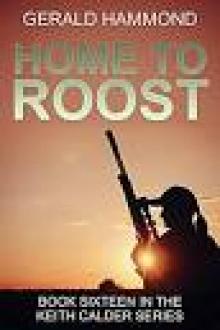 Home to Roost
Home to Roost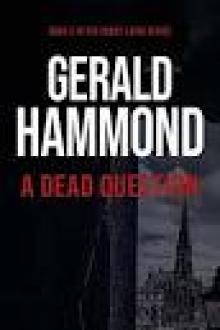 A Dead Question
A Dead Question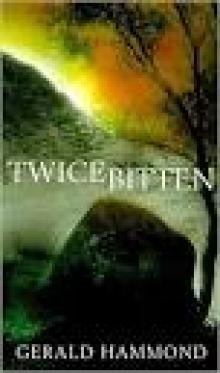 Twice Bitten
Twice Bitten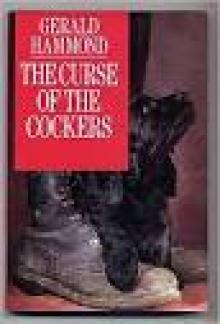 The Curse of the Cockers
The Curse of the Cockers In Loving Memory
In Loving Memory Illegal Tender (Three Oaks Book 12)
Illegal Tender (Three Oaks Book 12)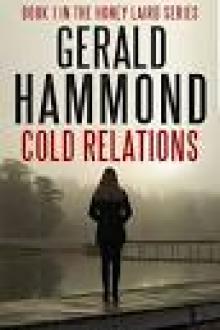 Cold Relations (Honey Laird Book 1)
Cold Relations (Honey Laird Book 1)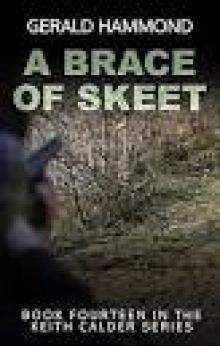 A Brace of Skeet
A Brace of Skeet Silver City Scandal
Silver City Scandal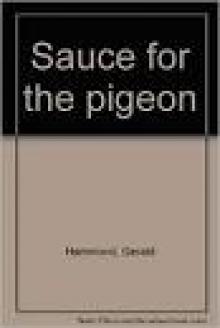 Sauce For the Pigeon
Sauce For the Pigeon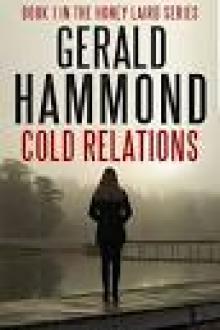 Cold Relations
Cold Relations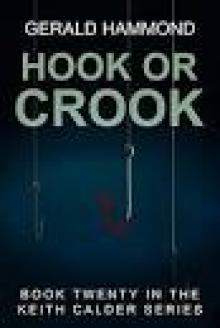 Hook or Crook
Hook or Crook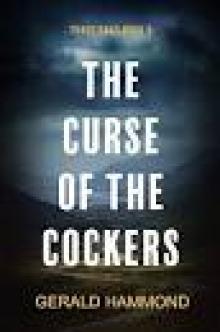 The Curse of the Cockers (Three Oaks Book 5)
The Curse of the Cockers (Three Oaks Book 5)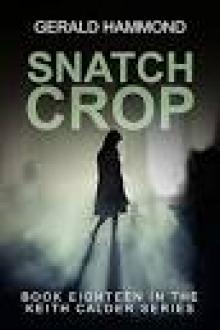 Snatch Crop
Snatch Crop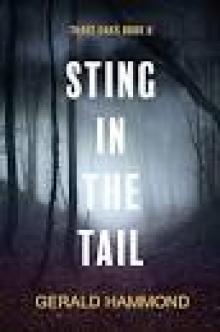 Sting in the Tail (Three Oaks Book 6)
Sting in the Tail (Three Oaks Book 6)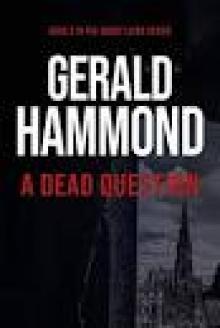 A Dead Question (Honey Laird Book 2)
A Dead Question (Honey Laird Book 2)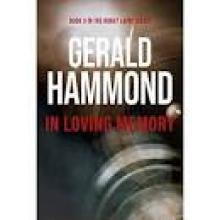 In Loving Memory (Honey Laird Book 3)
In Loving Memory (Honey Laird Book 3) Thin Air
Thin Air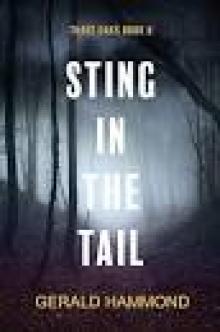 Sting in the Tail
Sting in the Tail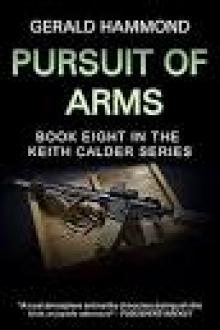 Pursuit of Arms
Pursuit of Arms The Game
The Game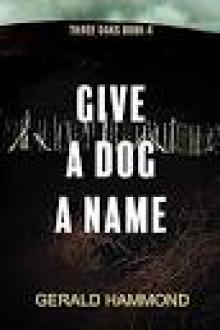 Give a Dog a Name (Three Oaks Book 4)
Give a Dog a Name (Three Oaks Book 4) Fair Game
Fair Game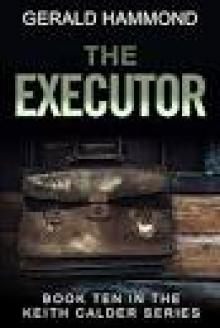 The Executor (Keith Calder Book 10)
The Executor (Keith Calder Book 10) Whose Dog Are You? (Three Oaks Book 2)
Whose Dog Are You? (Three Oaks Book 2)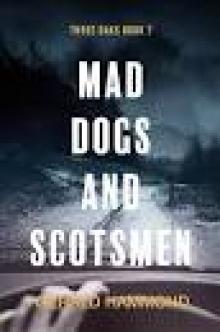 Mad Dogs and Scotsmen (Three Oaks Book 7)
Mad Dogs and Scotsmen (Three Oaks Book 7) Cousin Once Removed
Cousin Once Removed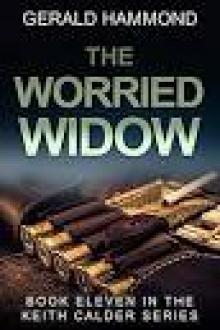 The Worried Widow
The Worried Widow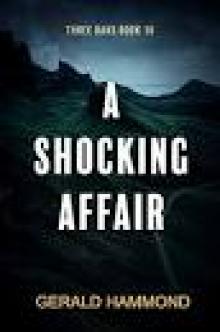 A Shocking Affair
A Shocking Affair Dead Weight (Three Oaks Book 11)
Dead Weight (Three Oaks Book 11) Whose Dog Are You
Whose Dog Are You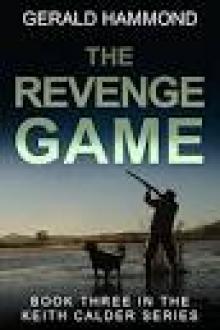 The Revenge Game
The Revenge Game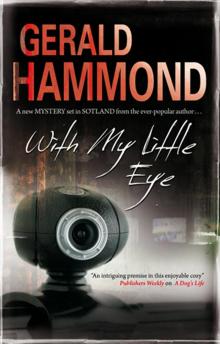 With My Little Eye
With My Little Eye Doghouse (Three Oaks Book 3)
Doghouse (Three Oaks Book 3)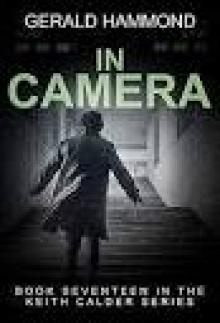 In Camera
In Camera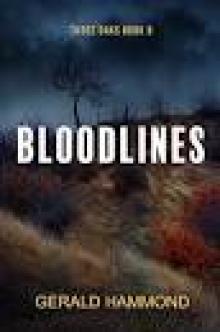 Bloodlines (Three Oaks Book 8)
Bloodlines (Three Oaks Book 8)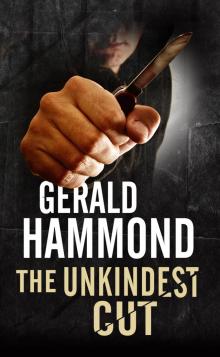 The Unkindest Cut
The Unkindest Cut